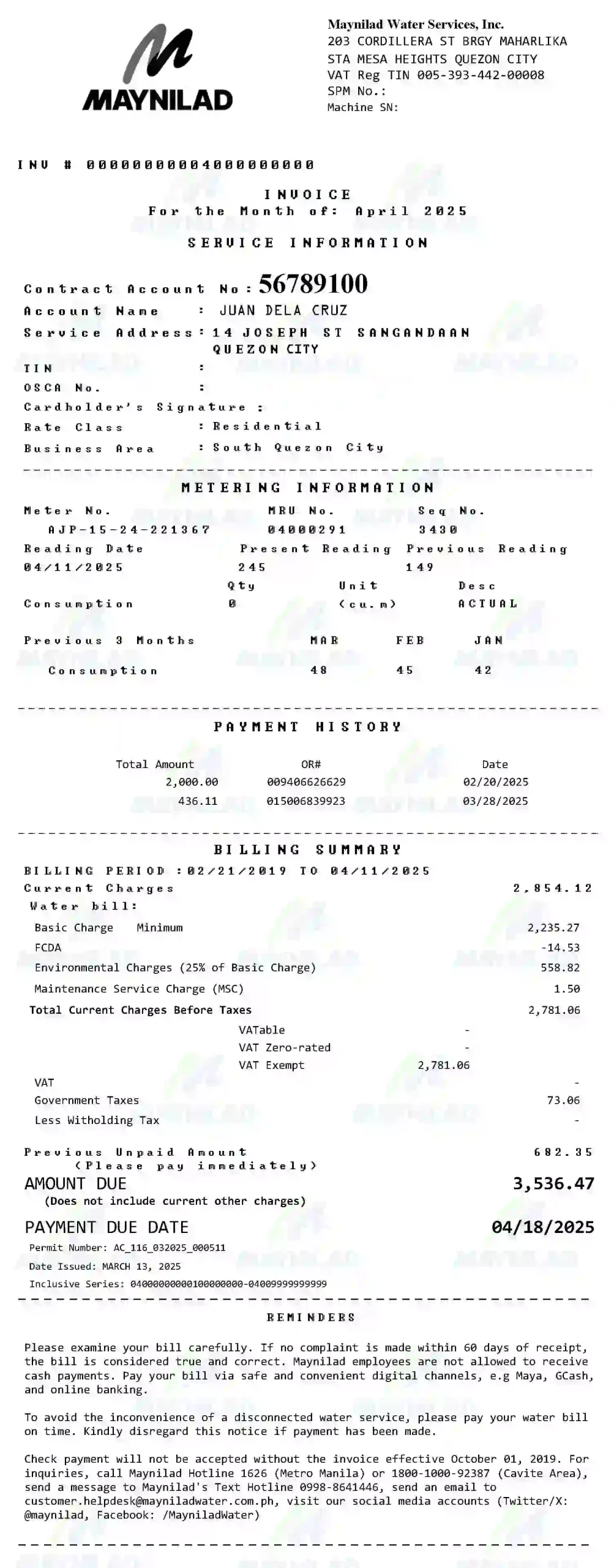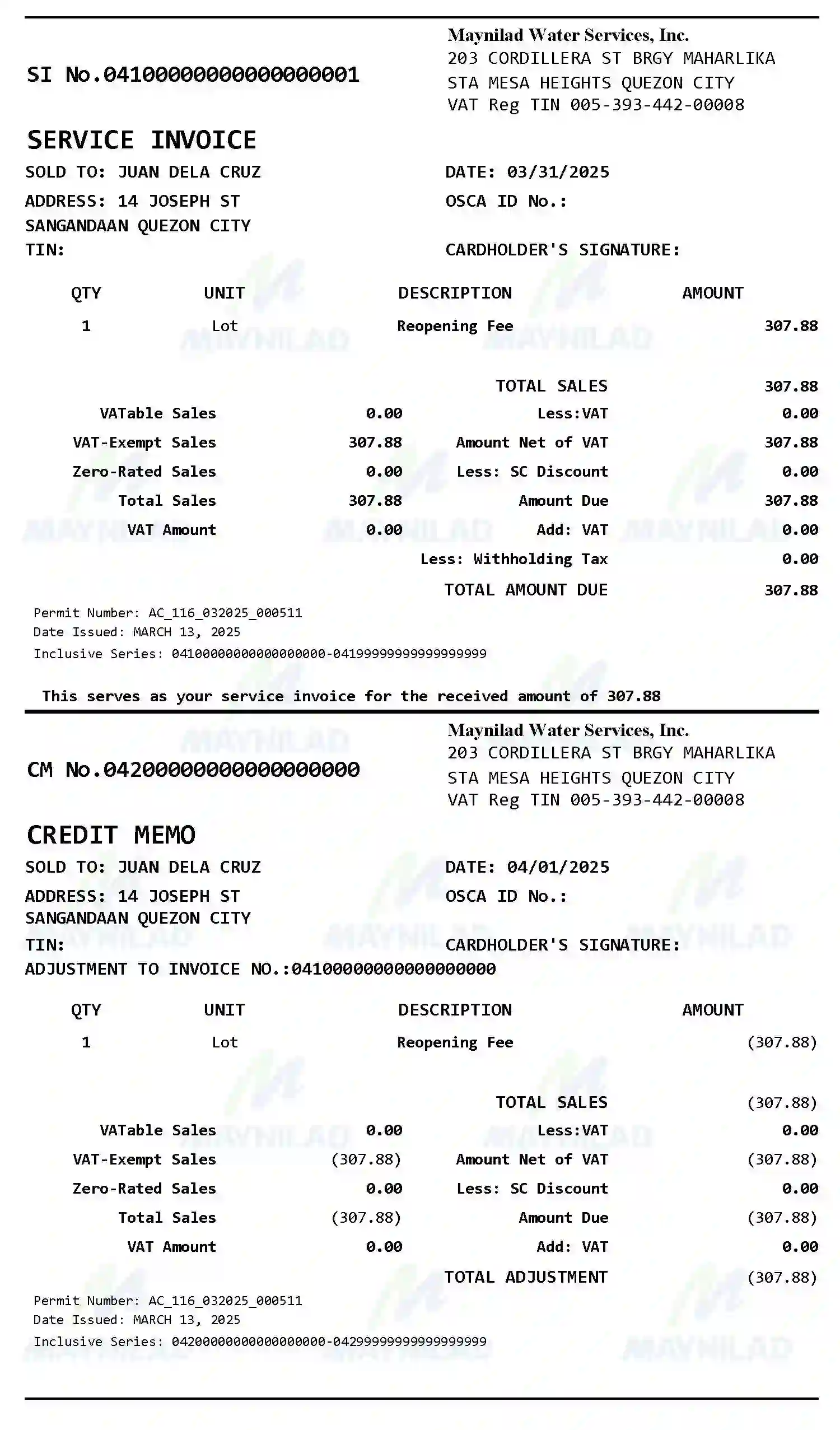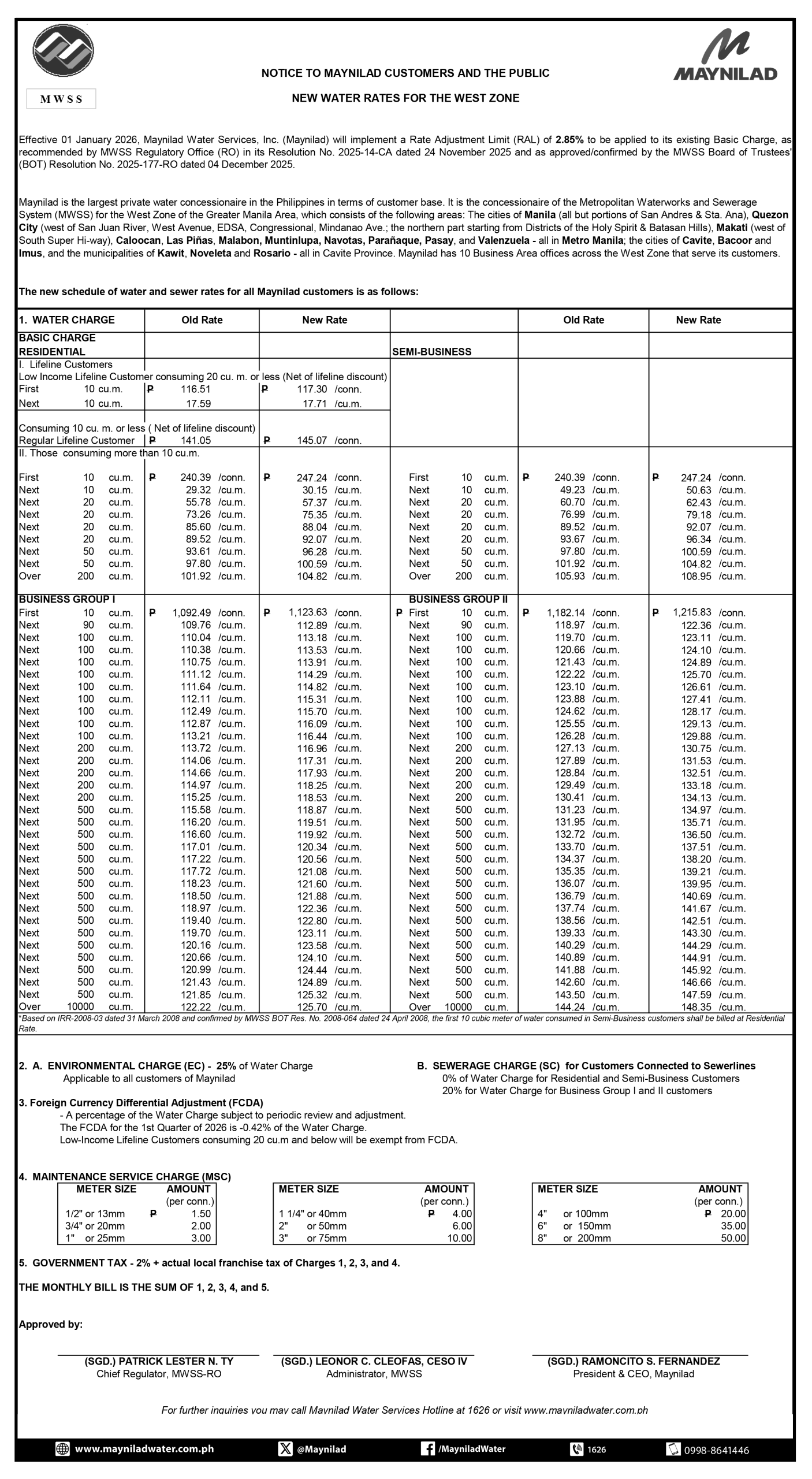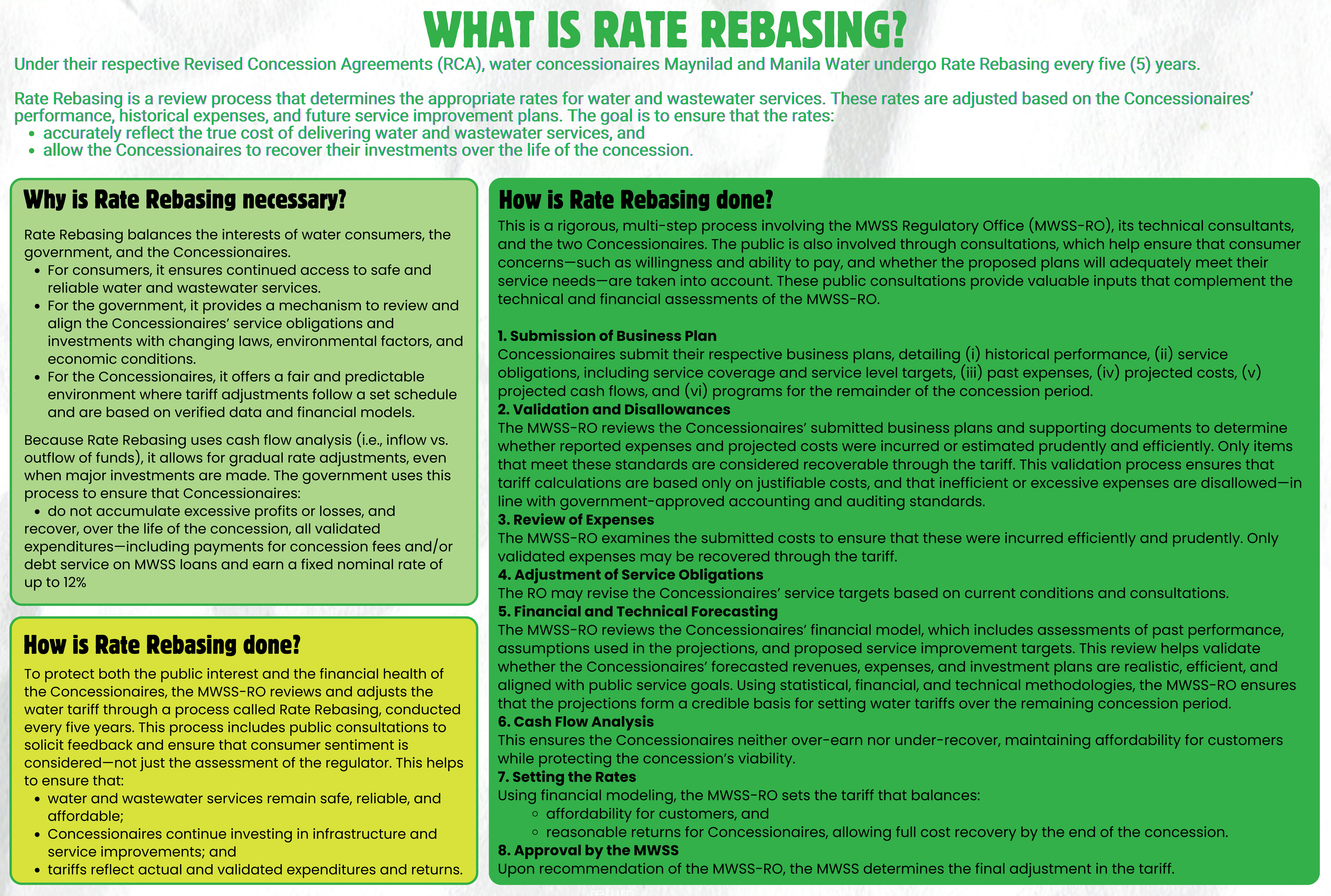How to Read your Water Bill
INVOICE (WATER BILL)
Beginning in April 2025, the “Statement of Account” will be referred to as an “Invoice” in accordance with the Ease of Paying Taxes Act (EOPT Law), also known as Republic Act No. 11976.
The “Invoice” is the monthly water bill that is issued to customers. It reflects the customer’s monthly consumption and billing, including the breakdown of charges.
Know more about the different components of your monthly water bill.
Hover your cursor over the blue circle to see more information about the various sections of the Invoice.

Service Information
This section shows your contact information, including the Contract Account Number (CAN) or the unique eight-digit identifier designated to your account to distinguish it from all other accounts. This information must be kept confidential.
- The INV # was previously the SOA document number. The invoice number pertains to the inclusive series number of the issued water bill.
- Changed the label from “Statement of Account” to “Invoice.”
Metering Information
This section provides basic details about your water meter, and specifies the meter’s reading of your current consumption, which is the basis for all billing charges. Your account’s consumption in the previous three months is also shown here.
- The Reading Date, Present Reading and Previous Reading is now arranged horizontally.
- The Consumption displays the Quantity (Qty), Unit of measurement in cubic meters (cu.m.) and Description (Desc) of the reading (Actual, Average, Adjusted).
Payment History
This shows your recent payment history.
Billing Summary
The breakdown of all charges can be found in this section.
- Changed the “Total Amount Due” to “Amount Due”.
Reminder
This section contains payment and/or service reminders for customers.

Service Invoice
Other charges such as Miscellaneous Fees, Reopening Fees, Installation Fees, Illegal Fees, Guaranty Deposits, etc., are included in this section. This will only be issued if applicable.
Credit Memo
In case of a reversal for Miscellaneous Charges, a Credit Memo (CM) will be issued to the consumer in conjunction with the water invoice.
Billing Summary
Basic Charge covers the cost of operating, maintaining, improving and expanding the distribution network, as well as the facilities that bring potable water to customers. It is based on the latest approved tariff schedule.
Foreign Currency Differential Adjustment (FCDA) is a tariff mechanism granted to Maynilad to recover or compensate for fluctuations, as the case may be, in the foreign exchange rates arising from Maynilad’s payment of foreign currency-denominated (i) Concession Fees to MWSS, and (ii) loans that Maynilad obtained for its service improvement projects.
Environmental Charge (EC) covers the cost for wastewater treatment, or the removal of harmful chemicals and nutrients from wastewater before it is discharged to bodies of water. This is important to mitigate ecological damage and to promote environmental protection.
Sewerage Charge (SC) is 20% of Basic Charge for Commercial and Industrial customers connected to a sewer line. This charge is not levied on Residential and Semi-Business customers, or on Commercial and Industrial customers who are not connected to the sewer line.
Maintenance Service Charge (MSC) covers the maintenance of the water meter, and is based on the size of the installed meter.
Government Taxes consist of the 2% National Franchise Tax, and the Local Franchise Tax implemented by the respective local government units where the Business Area offices of Maynilad are located. This will be remitted to the national and local government (BIR for the National Franchise Tax and LGU for the Local Franchise Tax).
Previous Unpaid Amount pertains to charges billed prior to the billing period, and should be settled immediately together with the current charges to avoid disconnection of the water service.
Amount Due reflects the Current Charges (water) and Previous Unpaid Amount. This does not include other charges such as Miscellaneous Charges, Reopening Fee, Installation Charges, Illegal Charges, Guaranty Deposit as these will be segregated under the Service Invoice.
Payment Due Date is the deadline for paying the Total Amount Due.
TARIFFS AND RATES
To ensure that Maynilad has the ability to sustain its operations and expand its services, it charges a water tariff that will allow it to gradually recover its investments, including its government-regulated profits.
The tariff follows a socialized structure so that those who consume less water are charged lower rates. Those who consume more water are charged higher rates.
Water consumers are also classified depending on the presence and nature of the economic activity in their house or establishment. Their classification determines what type of water rates will be applied to them, i.e., Residential, Semi-Business, Commercial, and Industrial.
Residential customers who consume 10 cubic meters (cu.m.) or less per month are entitled to discounted rates under Maynilad’s Lifeline Program. Qualified low-income customers may receive even higher discounts under the Enhanced Lifeline Program (ELP), which starting January 2025 also covers consumption of up to 20 cu.m. per month. Meanwhile, Commercial, Industrial, and high-consuming customers are billed higher rates.
RATE REBASING
Rate Rebasing is the process of adjusting water rates every five years. The adjustment is based on the performance, expenses, earnings, unrecovered investments, and service improvement plans of the water concessionaires.
Rate rebasing enables the gradual increase of water rates despite the massive, accelerated investments of the water concessionaires. This is because the process is based on a cash flow analysis or the examination of money inflows and outflows.
Through cash analysis, the government ensures that the water concessionaires are not over-accumulating profits and losses. It also guarantees that full recovery of the concessionaires’ expenses and profits will only be possible when the concession agreement ends.
To know more about Rate Rebasing, check the materials below:


